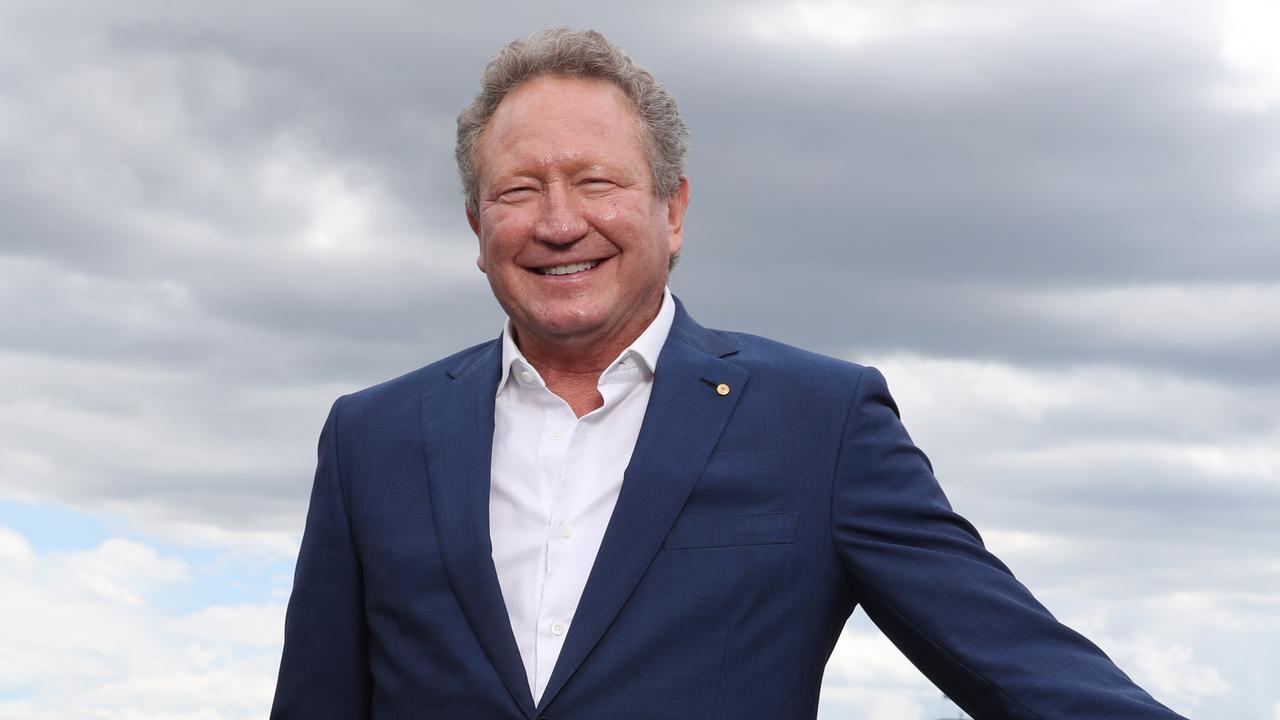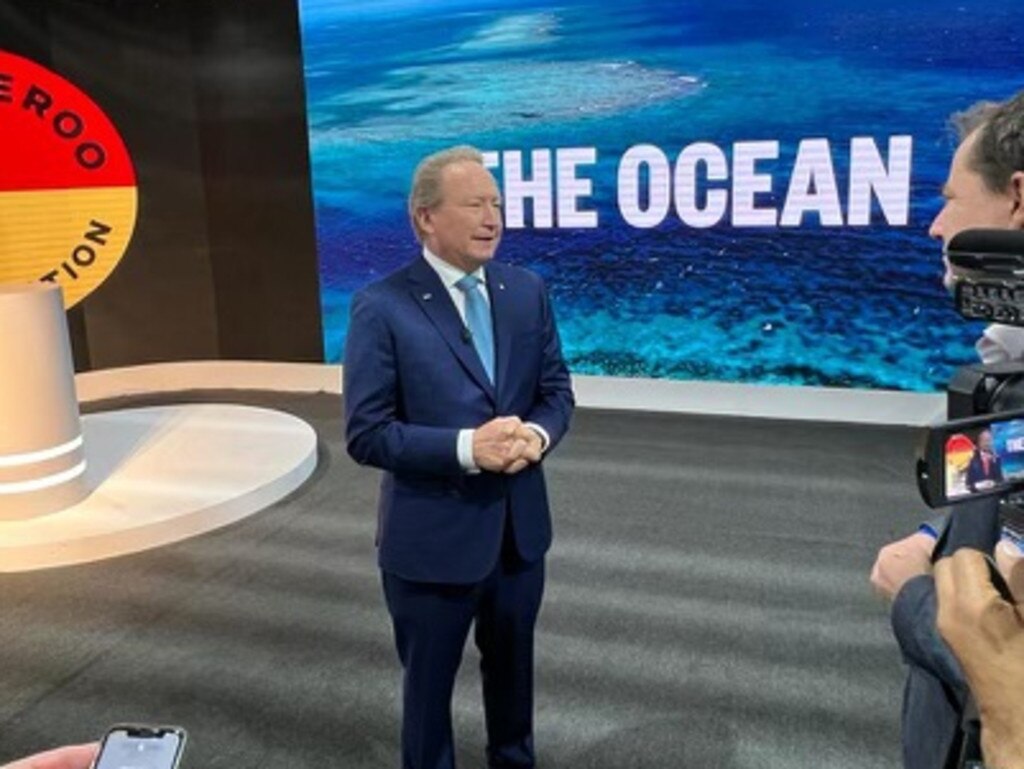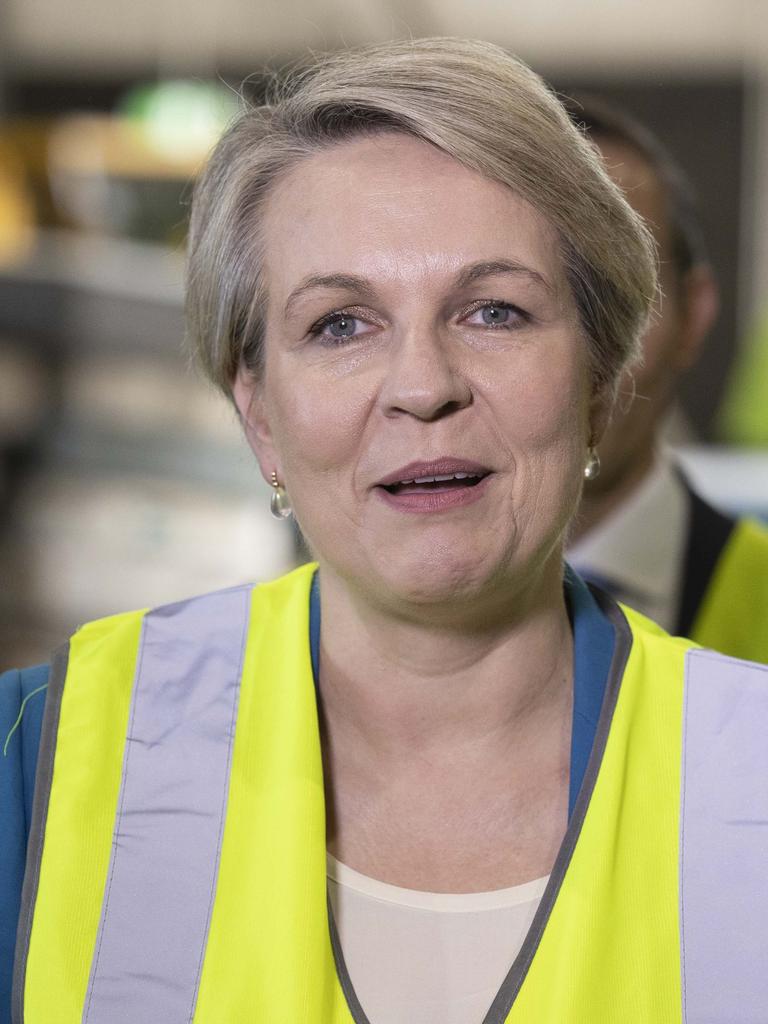Mining giant Andrew ‘Twiggy’ Forrest’s big call for moratorium on seabed mining
He made billions extracting metals from the Earth, but now Andrew Forrest has made an unexpected call at the COP27 climate conference. Have your say.

He made the bulk of his $20 billion fortune from mining the land, but now Fortescue Metals Group boss Andrew ‘Twiggy’ Forrest has called for a global moratorium on extracting minerals from the sea floor.
Speaking at the COP27 climate conference in Sharm el-Sheikh, Egypt, Dr Forrest said seabed mining was a “risk” to the “final frontier”.
His presentation comes amid a conference that is set to be dominated by questions of finance and even reparations for the developing world as it battles with climate-change induced damage.
Developed nations including Australia have been accused of offering discussion on the issue without time frames for resolution.
Proponents of seabed mining say the ocean floor could hold vast repositories of metals such as cobalt and lithium which could power the batteries and wind turbines of tomorrow, but Dr Forrest, who holds a PhD in marine ecology, said those required materials could be delivered through more efficient land mining processes, and better recycling.

“Just because the deep ocean is out of mind, out of sight, standards shouldn’t drop,” he said.
“If regulators can’t apply exactly the same whole-of-ecosystem studies, including flora, fauna, terrain and unintended consequence, and the same or higher consequence as we do on land, then the seabed shouldn’t be mined.”
“The deep seabed supports some of the least understood ecosystems on the planet. It is critically important to ecological processes affecting our entire ocean and yet our scientific knowledge of it remains extremely limited,” Dr Forrest said.
The International Seabed Authority has issued 31 mining exploration licenses for zones that lie in waters outside national jurisdiction, and could start approving extraction operations as early as July next year.
Minerals Council of Australia CEO Tania Constable said seabed mining could “make an important contribution to net zero” and such projects should be assessed on the basis of merits and risk.


“While seabed mining may not be appropriate in all sea environments, it may be compatible in other areas,” Ms Constable said.
The International Union for the Conservation of Nature called for deep sea mining to be banned last year, while in Australia, both the NT and NSW governments have outlawed it in local waters.
The Pacific Island nations appear split on the issue, with Nauru welcoming it as a potential source of income, while Palau called for a moratorium at the UN Oceans Conference in June.
The call for a pause until more research can be undertaken was quickly backed up by Samoa, Fiji, the Federated States of Micronesia and more than 30 other countries. French President Emmanuel Macron has also argued for a moratorium.
Environment Minister Tanya Plibersek said there was “a lack of sufficient scientific data on the impact of these activities on marine ecosystems”.
“Australia recognises that there are different views and interests among Pacific countries on deep seabed mining,” Ms Plibersek said.
“We’ve been working collaboratively on this issue through international forums, including the UN’s International Seabed Authority and with Pacific partners.”
According to one international study published in July this year, involving researchers from WA’s Curtin University, the noise from seabed mining operations could travel as far as 500 kilometres, leading to far-reaching consequences for marine wildlife and the global fishing industry.




